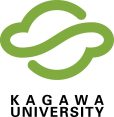The AAP Special Course is a five-year, English-taught master’s and doctoral program for international students from Asia, Africa, and the Pacific Rim. Established in 2008, it is offered by the Shikoku International Student Education Consortium through the Graduate School of Agriculture at Kagawa University, together with partner universities.
Students complete the first two years as a Master’s Course at the Graduate School of Agriculture, Kagawa University. The final three years are the Doctoral Course at the United Graduate School of Agricultural Sciences, Ehime University. Research activities throughout the program are conducted at Kagawa University.
Program Goals
Humanity is confronting urgent global challenges—environmental degradation, climate change, and rapidly growing populations—that impact food security, agricultural sustainability, and the future of our oceans. Addressing these issues requires not only advanced scientific knowledge, but leaders with the vision to apply it responsibly.
The AAP Special Course cultivates next-generation global leaders in agriculture, agricultural technology, and marine science. Through world-class research opportunities and the unique natural and industrial strengths of the Shikoku region, students develop the expertise and leadership skills needed to contribute to sustainable solutions on a global scale.
Academic Plan
- The AAP Special Course is an integrated five-year program that combines a two-year master’s course with a three-year doctoral course. Upon completing the master’s course requirements—which include 30 credits from the AAP curriculum, an approved master’s thesis, and a successful final examination—students are awarded a master’s degree from their host university. Students then progress to the doctoral course at the United Graduate School of Agricultural Sciences, Ehime University, where they conduct research at Kagawa University. The doctoral degree is awarded after earning the required credits, receiving approval of the doctoral dissertation, and passing the final examination. While the standard pathway is the full five-year program, flexibility is built into the system. Applicants may enroll in the master’s course only, and qualified students may enter directly into the three-year doctoral course.
- This structure enables students to design a curriculum tailored to their goals. With guidance from academic advisors, students can choose from more than 130 courses to build a unique and specialized study plan.
- All coursework and research supervision are conducted in English. In addition, all students take a required Survival Japanese course after enrollment, with optional Japanese language and culture classes available for those who wish to deepen their cultural understanding.
Admission
To be admitted to the program, applicants must demonstrate the following:
Knowledge and Understanding:
Possess academic knowledge and foundational research skills at the bachelor’s level appropriate for environmentally sustainable agriculture, forestry, fisheries, or related sciences, with awareness of issues affecting their home country.
Thinking, Judgment, and Implementation:
Show the ability to identify key challenges in agriculture, forestry, fisheries, and related industries and to approach these challenges using logical, analytical, and scientific thinking.
Interest, Motivation, and Attitude:
Demonstrate a strong commitment to contributing to global and regional issues, an ethical mindset, a willingness to collaborate with others, and the ability to think independently.
Skills, Expression, and Explanation:
Have sufficient communication and presentation ability to clearly express reasoning, goals, and academic intentions in English.
Curriculum
Introductory / Elective Subjects
Provide foundational knowledge in environmentally friendly and sustainable agriculture, forestry, and fisheries, along with essential presentation and academic communication skills. These courses also include language education focused on basic conversational Japanese and sentence patterns necessary for daily life.*
<small>*All students take a required Survival Japanese course after enrollment. Additional Japanese language and culture courses are available for those who wish to deepen their understanding.</small>
Research Subjects
Develop the ability to plan, conduct, and evaluate research, as well as to debate, present, and communicate scientific findings.
Practical Subjects
Offer hands-on learning opportunities through fieldwork and company placements, enabling students to gain real-world experience, understand the unique agricultural and marine characteristics of the Shikoku region, and engage with Japanese communities and culture.
Specialized Subjects
Provide advanced, in-depth knowledge related to sustainable food production, allowing each student to build a personalized academic pathway aligned with their research goals.
Master’s Thesis
Develops advanced research competency, experimental and analytical skills, and the ability to think logically and systematically.
Evaluation is conducted comprehensively based on the student’s demonstrated growth in Knowledge and Understanding, Theoretical Thinking, Judgment and Implementation, Interest, Motivation and Attitude, and Skills, Expression and Explanation throughout the thesis process.
Outcomes
Upon completion of the program, graduates will demonstrate the following competencies:
Knowledge and Understanding:
Develop comprehensive expertise in environmentally sustainable agriculture, forestry, fisheries, and related sciences, along with an informed understanding of Japan’s economy, industries, culture, and traditions.
Thinking, Judgment, and Implementation:
Gain advanced analytical and problem-solving abilities to identify critical issues in agriculture, forestry, fisheries, and related industries, and to address them using theoretical and scientific approaches.
Interest, Motivation, and Attitude:
Demonstrate independent and forward-thinking leadership with a global perspective, strong ethical standards, and the ability to collaborate effectively with others to tackle complex challenges.
Skills, Expression, and Explanation:
Achieve a high level of communication and presentation skills, enabling clear explanation of research rationale, decisions, and results to both specialists and non-specialists.
Program Overview


